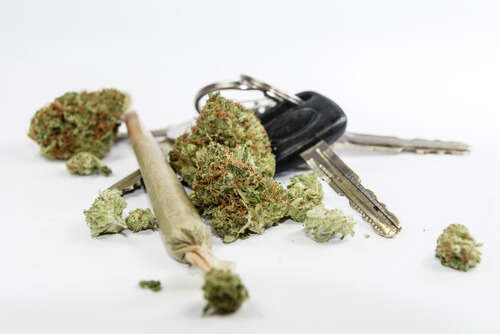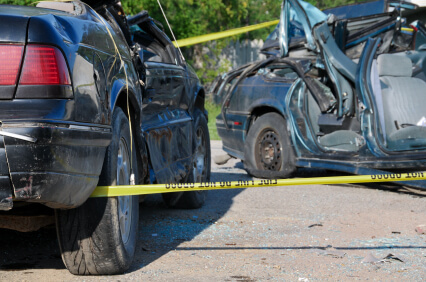Both medical and recreational marijuana are legal in Michigan. However, consuming marijuana while driving or driving while under the influence of marijuana is illegal. There are many gray areas where cannabis and driving while intoxicated are concerned that can lead to tickets, arrests, and prosecution. Should you be involved in a car accident while high, the matter gets even more complicated.
Marijuana Intoxication on Michigan Roads
It is illegal to consume marijuana while your vehicle is on a public road and it is illegal to drive under the influence of marijuana. Unfortunately, there is no legal definition in Michigan of what driving under the influence constitutes for someone who has consumed marijuana. This lack of legislative guidance means plenty of inconsistencies where Michigan’s Operating While Intoxicated (OWI) laws are concerned for marijuana users.
The state has a zero-tolerance policy for drivers who have a detectable amount of THC in their system. Most often, though, someone stopped for driving while under the influence of marijuana and prosecuted as such has the evidence of intoxication gathered by police during the traffic stop used against them.
There is no research to show that there is a specific blood concentration of THC that makes a person too intoxicated to drive. It is also scientifically proven that THC remains in the blood stream long after the effects of marijuana have worn off, making it unreliable to measure a person’s level of THC in their system along with their level of intoxication.
How can police prove that a driver is high behind the wheel? It’s not easy. Evidence of alcohol consumption and evidence of marijuana consumption are two completely different things. Their effects on driving ability can also differ.
While it is possible to test the amount of alcohol in a person’s blood during a traffic stop – and Michigan has a legal blood alcohol content (BAC) limit of 0.08 percent – objectively measuring the level of cannabis intoxication is far more difficult and mostly subjective. Police will be looking for signs of visible impairment – red eyes, slow responses, a dazed or confused demeanor, and an odor of marijuana in the vehicle or on the person.
Zero Tolerance for Marijuana Usage While Driving in Michigan
Michigan’s zero-tolerance policy for marijuana OWIs is inconsistently applied. However, holders of medical marijuana cards cannot be prosecuted for an OWI just because they have THC in their system. Additional evidence of intoxication and poor driving are required and, again, this is mostly subjective and based on the ticketing or arresting officer’s observations alone.
Nevertheless, it is possible to face OWI charges for only having trace amounts of THC in your system. The growing acceptance and use of cannabis mean police officers are increasingly on the lookout for drivers who are under the influence of marijuana – even though there is no scientifically proven or reliable test yet available to determine true impairment by marijuana.
If you have been involved in a car accident while high, find a lawyer who will advocate on your behalf, challenge the validity of the traffic stop, and challenge the proof that you were legally intoxicated. If you were in a car crash because of an intoxicated driver, reach out to personal injury lawyer David C. Femminineo at Femminineo Attorneys in Macomb County. Contact us today to schedule your consultation.



